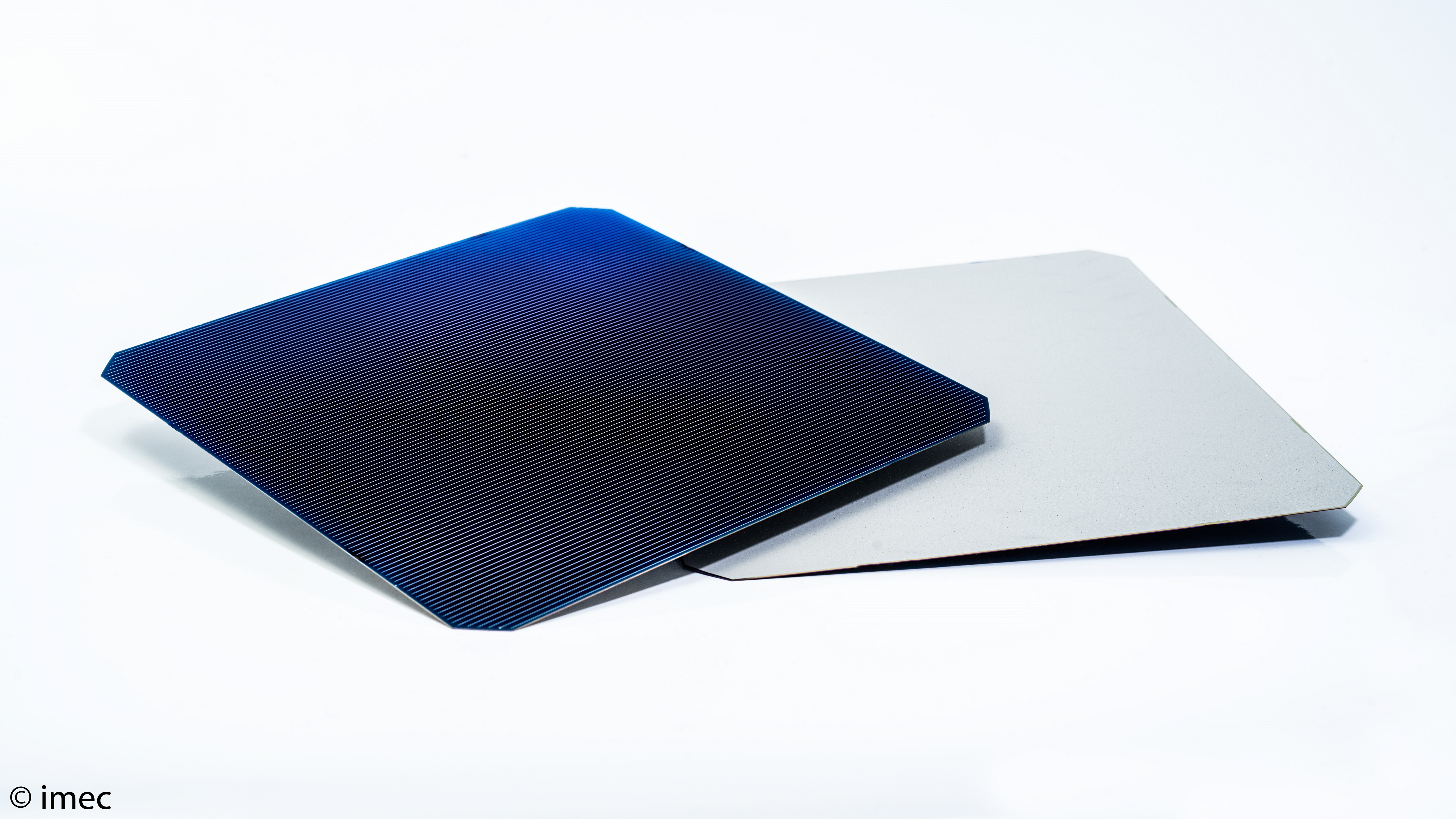At today’s EU PVSEC conference, imec – the world-leading research and innovation hub in nanoelectronics, energy and digital technology and partner in EnergyVille – announced that its latest generation of large-area monofacial screen-printed rear-emitter nPERT cells feature a conversion efficiency of 23.03 percent, certified by Fraunhofer ISE CalLab. The nPERT (n-type Passivated Emitter and Rear Totally diffused) solar cells are made using an industry-compatible screen-printing process that has been designed as an upgrade of conventional pPERC (p-type Passivated Emitter and Rear Cell) processes. According to imec, its nPERT technology is projected to reach 23.5 percent efficiency by the end of this year, and there is a clear technology roadmap to eventually surpass 24 percent.
While p-type PERC solar cells are becoming mainstream in the PV industry, n-type PERT technology is being developed as a cost-effective contender that has a number of inherent advantages: Due to the absence of B-O complexes, n-type cells don’t suffer from light induced degradation (LID) and are less sensitive to metal impurities. That makes for cells that have the potential for a longer-term stability and a higher efficiency. Imec fabricated the M2-sized cells (area: 244.3 cm²) on its pilot line with industry-compatible tools and recipes, in a process that is an upgrade of the pPERC fabrication process, using a similar layout of an n+ region (Front Surface Field) on the illuminated side and a p+ region (as rear emitter) on the opposite side and adding a cost-effective boron diffusion.
“Until now, nPERT solar technology has not yet found the traction it deserves in the industry,” says Loic Tous, senior researcher at imec. “With these ever-improving results, which we achieved by applying knowledge gained from our bifacial nPERT project, we are now demonstrating the potential of nPERT technology. The advantages in stability and efficiency potential over p-type PERC cells, while using the same equipment with the addition of a Boron diffusion, make this a very promising technology for future manufacturing lines.”



















